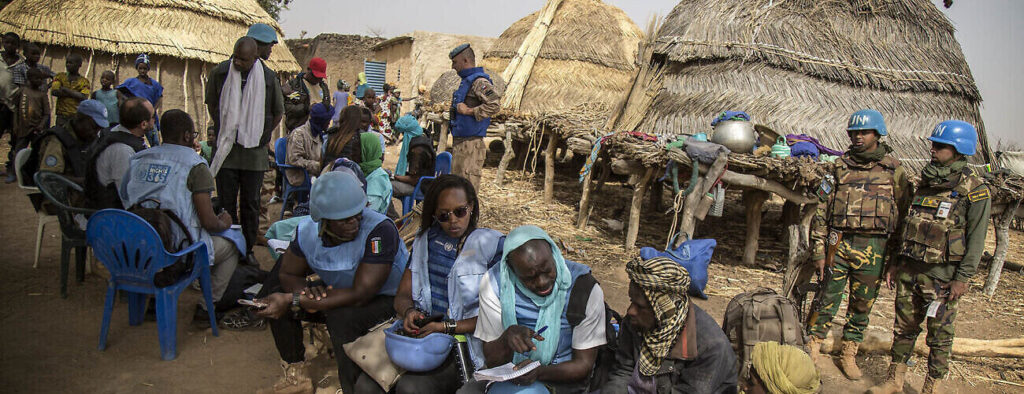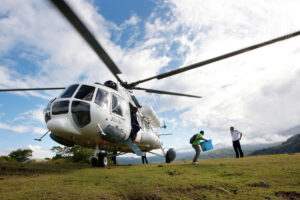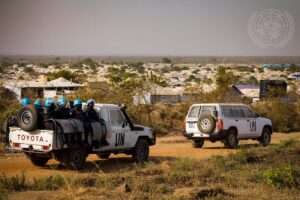The trajectory of the United Nations (UN) peacekeeping mission in Mali (MINUSMA) over the last decade offers important considerations for the future of peacekeeping when it comes to the protection of civilians. The UN Security Council’s decision in June to end MINUSMA followed a request from the Malian Foreign Minister two weeks prior to withdrawing consent for the mission. It is unclear how the mission will manage its abrupt exit while still attempting to provide some form of limited protection to the civilian population for only three months. The Malian authorities will face greater challenges extending their authority across the country to replace MINUSMA’s efforts to protect civilians, especially after the withdrawal of key air enablers and mission logistical support. The implications of this for civilians given the insecurity across the country are likely to be dire without additional international or regional assistance.
When the Council authorized the deployment of MINUSMA in April 2013, it mandated the mission to “protect, without prejudice to the responsibility of the transnational authorities of Mali, civilians under imminent threat of physical violence, within its capacities and areas of deployment.” In the intervening years, the mission’s protection of civilians (POC) mandate has evolved to reflect the changing political and security situation, with early mandates linking POC to stabilization tasks and more recent mandates including POC as a second strategic priority to “facilitate implementation of a comprehensive politically-led Malian strategy to protect civilians.” By June 2022, the mandate included directions for MINUSMA to protect civilians through a number of approaches: support the Malian authorities to stabilize key population centers; develop enhanced early warning measures; prevent the return of armed groups through direct operations; strengthen community engagement; and provide specific protection for women and children.
MINUSMA deployed at a time when the UN Secretariat and member states had already become well-sensitized to the role of peacekeeping missions in POC. After nearly 15 years of POC mandates, by 2013, the UN Department of Peacekeeping Operations finally had a small, dedicated team at headquarters to drive the development of guidance and policies. Deploying troop- and police-contributing countries (T/PCCs) had access to training materials, and peacekeeping mission leadership was supported in the development of mission-specific strategies and the expertise of new protection of civilians advisers. Because of the presence of several NATO countries with advanced logistics and intelligence capabilities, MINUSMA was able to capitalize on these tools and innovate approaches to intelligence, situational awareness, the use of technology, and strategic planning in support of POC.
However, the asymmetric threat environment meant MINUSMA faced several unmatched challenges, some of which stemmed from working alongside different parallel counterterrorism operations. The mission also faced an expanding range of obstructions to its operations after two military coups in 2020 and 2021 increased tensions with the ruling authorities. Views between the Malian authorities and the Security Council diverged on the role of the mission, particularly when it came to peace enforcement and human rights monitoring, as illustrated in Mali’s response to the UN secretary general’s internal review. These developments had a significant impact on the mission’s effectiveness on POC and offer some important considerations for future peace operations.
Read the full article here.




